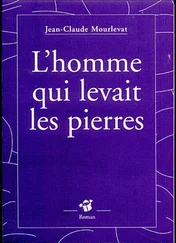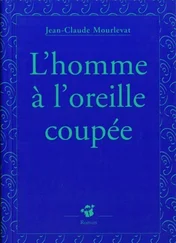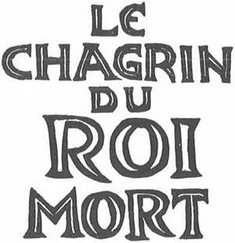Jean-Claude Mourlevat - Winter's End
Здесь есть возможность читать онлайн «Jean-Claude Mourlevat - Winter's End» весь текст электронной книги совершенно бесплатно (целиком полную версию без сокращений). В некоторых случаях можно слушать аудио, скачать через торрент в формате fb2 и присутствует краткое содержание. Год выпуска: 2010, ISBN: 2010, Издательство: Candlewick, Жанр: Старинная литература, на английском языке. Описание произведения, (предисловие) а так же отзывы посетителей доступны на портале библиотеки ЛибКат.
- Название:Winter's End
- Автор:
- Издательство:Candlewick
- Жанр:
- Год:2010
- ISBN:9780763651749
- Рейтинг книги:5 / 5. Голосов: 1
-
Избранное:Добавить в избранное
- Отзывы:
-
Ваша оценка:
- 100
- 1
- 2
- 3
- 4
- 5
Winter's End: краткое содержание, описание и аннотация
Предлагаем к чтению аннотацию, описание, краткое содержание или предисловие (зависит от того, что написал сам автор книги «Winter's End»). Если вы не нашли необходимую информацию о книге — напишите в комментариях, мы постараемся отыскать её.
Winter's End — читать онлайн бесплатно полную книгу (весь текст) целиком
Ниже представлен текст книги, разбитый по страницам. Система сохранения места последней прочитанной страницы, позволяет с удобством читать онлайн бесплатно книгу «Winter's End», без необходимости каждый раз заново искать на чём Вы остановились. Поставьте закладку, и сможете в любой момент перейти на страницу, на которой закончили чтение.
Интервал:
Закладка:
“Faber wants to introduce me to his people so that I can greet them and speak to them. They’ve gathered at the way out of the village.”
The little group set off through the fog and had soon left the last houses behind. Bart wondered what to expect. Faber had said that a great many horse-men had gathered here, but what did that mean? A hundred? Perhaps two hundred? He walked on beside Jahn, never guessing that he was about to experience one of the greatest moments of his young life.
At first he saw only a dozen rows of horse-men standing motionless in the mist. The vapor of their breath half hid their massive faces. They wore warm clothing and boots. Most of them had bags on their backs or slung over their shoulders. Clubs could be seen sticking out of some of the bags, while other men held clubs in their hands. Bart was impressed by the sense of power radiating from these dark, silent, colossal figures.
“How many are there?” he whispered to Faber. “I can’t see them all.”
“A great many, as I said. They’re waiting for you to speak to them. Right, get up there and off you go.”
“But they won’t all hear me. My voice isn’t loud enough.”
“You don’t have to shout. Just speak to the ones in front. They’ll pass it on. They’ll repeat exactly what you say till it gets to the back row. We always do it that way here — no need for anyone to yell.”
Bart gave Jahn an uneasy glance. Jahn shrugged. He couldn’t help, nor could Lando or Milena, who gave him a little signal of encouragement. He took a step forward, slightly at a loss, and got up on the wine crate that had been put there for him to stand on. What was he to say? Why hadn’t he had the sense to prepare a speech in advance? Well, too late now.
“Good morning, friends,” he began. “My name is Bartolomeo Casal.”
He was about to go straight on, but Faber stopped him with a gesture. He had to leave time for the sentence to be repeated. The horse-men in the front row turned around and passed it on in low voices to those in the second row:
“Good morning, friends, my name is Bartolomeo Casal . . .”
who passed it on to the third row:
“Good morning, friends, my name is Bartolomeo Casal . . .”
and so on.
Soon the message was lost in the mist, but he knew it was still passing from one man to the next. It took a long time. Now and then Bart looked inquiringly at Faber — Can I go on? — but Faber shook his head: no, not yet. After long moments of silence, the low note of a horn was heard in the distance. Faber nodded: the message had reached the end of its journey.
Bartolomeo realized how precious words were in such circumstances. He mustn’t waste them. He had to find the shortest way to say what had to be said.
He went on: “In the past, my father led you . . .”
“In the past, my father led you . . .” repeated the horse-men in the front row.
“In the past, my father led you . . .” the men in the second row passed it on.
“And he lost his life, like many others.”
“And he lost his life, like many others.”
“And he lost his life, like many others.”
“Now I will take up the fight again, with you!”
“Now I will take up the fight again, with you!”
“Now I will take up the fight again, with you!”
“Trust me!”
“Trust me!”
“This time the people will be with us . . . ”
“This time the people will be with us . . .”
“And we will defeat the barbarians!”
“And we will defeat the barbarians!”
Punctuated by the horn calls in the mist, the simple sentences they repeated took on unexpected weight in the silence as they made their slow progress on. There was time to weigh every word, and every word weighed heavy: rebel. . . rebel . . . fight . . . fight . . . freedom . . . freedom . . .
He asked them to set off for the capital that morning. When he had finished, the last horn call set off a roar that sent a shiver down his spine.
“Go and greet them,” Faber told him. “Walk among them; they’ll like that.”
“No,” protested Bart, getting off his crate. “I can’t do it. I don’t like the idea of some kind of personality cult. I’d feel ridiculous.”
Jahn took his arm. “Go on, Bart. You mustn’t disappoint them. And those of them who knew your father will be happy to see him again in you.”
Bartolomeo hesitated for a few more seconds and then made up his mind. “All right, but you come too, Milena.”
He took Milena’s hand and led her forward. The first rows opened before them, and they let themselves be swallowed up by the peaceful crowd of horse-men, the vapor of their breath hovering almost motionless above their heads. It was an unreal moment. There were not hundreds but thousands of people ready to fight. In their heavy winter clothes, with caps or balaclavas on their heads, they seemed to have come out of another time. There were many women among them, and boys too, some of them no more than twelve. These lads were proudly brandishing their pikes or clubs. In the ghostly light of early morning they all made way for the two young people, offering them smiles and words of friendship.
“Are we in a fairy tale?” whispered Milena.
“That’s how I feel,” said Bart. “Either that or we’re dreaming the same dream at the same time.”
Soon they had lost their sense of direction and didn’t know which way to go. Wherever they turned, they saw the same multitude of backs, shoulders, kindly faces, and there were the same large hands to shake. Immersed in the warmth of this human throng, they no longer felt concern either for what the next day would bring or for the biting cold of winter.
“Which way is the village?” asked Milena at last, feeling dazed.
A young horse-woman heard her and took her arm. “Would you like me to take you back? Follow me!”
She set off ahead of them, very proud to be their guide. She was bare-headed, and her straight hair, growing untidily, stood up on her strong skull in tufts. There were deep folds around her neck. Her man’s coat flapped around her legs, and now and then she turned to see if they were still following her. When she saw that they were there, she smiled with delight. Once she took her opportunity to whisper to Milena, “Oh, you’re as beautiful as a princess!” Then she turned away very quickly, moved with emotion at her own daring.
“You’re the beautiful one,” Milena murmured to herself. “Much more beautiful than me.”
Back in the village they all met at Faber’s house again. Jahn left briefly, accompanied by the inevitable Jocelin, to go to the post office, the only place in the village with a telephone. He came back looking very pale to announce his news: the uprising had begun in the capital during the night, and the army had opened fire, terrorizing the population. There were dozens of dead, and this morning the Phalange had restored order. However, in several northern towns, young people had put up barricades, which they were defending doggedly, and those barricades were still holding.
“Good God!” swore Lando. “Things are moving much too fast! It’s far too soon!”
“Yes, it’s too soon,” Jahn agreed, “but there we are. The fire has been lit. No one can put it out now.”

As soon as she woke up, Helen realized that this wasn’t going to be a morning like any other. After her fright when the militia broke into Milena’s room, she had fallen asleep. It was a heavy, dreamless sleep, and now she was sitting on the edge of her bed, feeling numb. Her alarm clock told her that it was nearly ten in the morning. She had never gotten up so late since coming to the restaurant. She washed, dressed hurriedly, and went out into the silent corridor. The sight of Milena’s shattered door brought last night’s violence straight back to her. She passed it without stopping and went downstairs, feeling vaguely that the whole world was out of joint.
Читать дальшеИнтервал:
Закладка:
Похожие книги на «Winter's End»
Представляем Вашему вниманию похожие книги на «Winter's End» списком для выбора. Мы отобрали схожую по названию и смыслу литературу в надежде предоставить читателям больше вариантов отыскать новые, интересные, ещё непрочитанные произведения.
Обсуждение, отзывы о книге «Winter's End» и просто собственные мнения читателей. Оставьте ваши комментарии, напишите, что Вы думаете о произведении, его смысле или главных героях. Укажите что конкретно понравилось, а что нет, и почему Вы так считаете.












